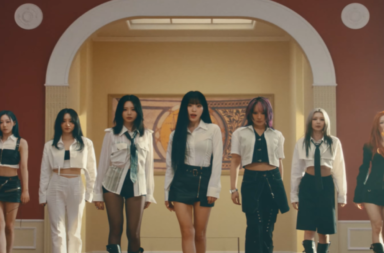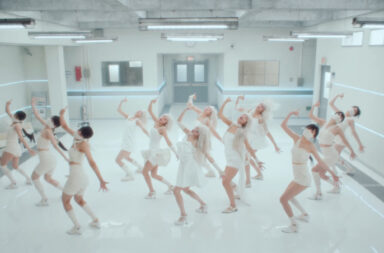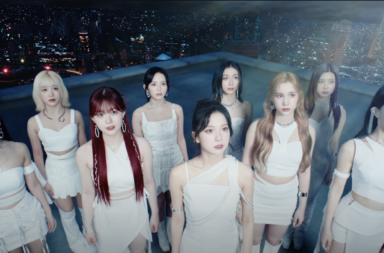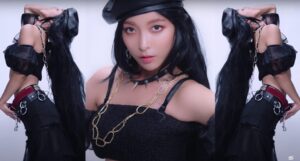
It’s not much of an exaggeration to say that Luna, formerly of f(x), is one of the great voices of K-pop. Her range, skill, and vocal color combine into a truly unique voice, which is why it is so surprising how little solo work she’s done since her debut five years ago. Oh, she’s been working– collaborations, features, OSTs, theatre work, variety shows– but other than a few singles, she hasn’t done much singing since the release of Free Somebody.
However, with the founding of her own label, Grida Entertainment, and the release of her new track, “Madonna”, it looks like Luna is returning to the field from whence she came. Sadly, “Madonna” is not much of a comeback anthem for Luna, given that it lacks any sense of her.
The fact is, “Madonna” is mostly a generic self-empowerment anthem. The few moments it’s not are when it’s completely undercutting the ideal espoused in the lyrics. Some might call that ironic, but it is more inherent. Luna wants to be like Madonna: a woman who forged her own path in music, a pop cultural icon, a shameless rebel. Except she cannot be a path-forging iconic rebel if she is trying to be like somebody else.
“Madonna” is the embodiment of performative individuality. Everything about this MV feels safe and familiar. Soloist in costumes to separate her from her dancers and the background? Check. Those outfits being normal, stylish outfits that only pop because of that contrast? Yes. Empty black soundstage? Dancing in an industrial site? One genuinely unusual outfit that still rings a bell? All present and accounted for. “Madonna” is Luna trying to be unique like all her friends.
To be fair, “Madonna” is a standard concept executed well. Luna looks incredible. Every moment she is on screen screams of confidence; that she could walk off set and into the streets of Seoul in her feathered dress and leggings with the same untouchable aura. But when your song is about aspiring to channel the spirit of music’s most controversial trend-setters, it loses power when the opening shot will make your audience think “Didn’t Somi wear that jeweled headdress?”.
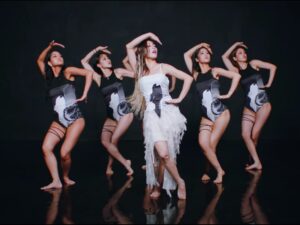
That sense of well-done genericism permeates the song as well. Luna herself is excellent, flaunting her range and control from the opening lines. But at the core of it, “Madonna” is a piano ballad married to a trap banger. Neither the parts nor the union are anything outside of the standard. The drop, the whispers, the vocals runs, it’s all very de rigeur, with only Luna’s vocals providing a unique selling point. Swap her with literally any other singer, and the only difference would be difficulty performing the vocal runs. And that’s the issue: it is hard to imagine anyone disliking “Madonna”, but it is also hard to imagine it drawing anyone in. No one’s skipping it, but neither does it invite the audience to seek more of Luna’s work.
“Madonna” is a song that is sleek, polished, and perfectly on-trend, and if that is how Luna wants to go forward, more power to her. She can and does excel in that lane. The issue is that by invoking the image of Madonna, the song invites the audience to make comparisons to Madonna, and those comparisons come up short. What is easy to forget about Madonna is that those moments that cemented her in pop culture history were risky. She lost radio play and multi-million sponsorships. She was picked at, derided, and harassed by the police for her “explicit” stage performances. It’s the risk that made her great; the controversies were what built her.
If Luna had said anything else– a queen, a goddess, a free spirit, a rebel– then this song would hit the mark very well, as she owns her performance and image in those ways. But she is aspiring to the role of the woman who published a coffee table book of herself and Vanilla Ice in flagrante delicto. A by-the-numbers track just doesn’t measure up. It just makes the listener want to listen to Madonna.
(YouTube. Images via Grida Entertainment)
